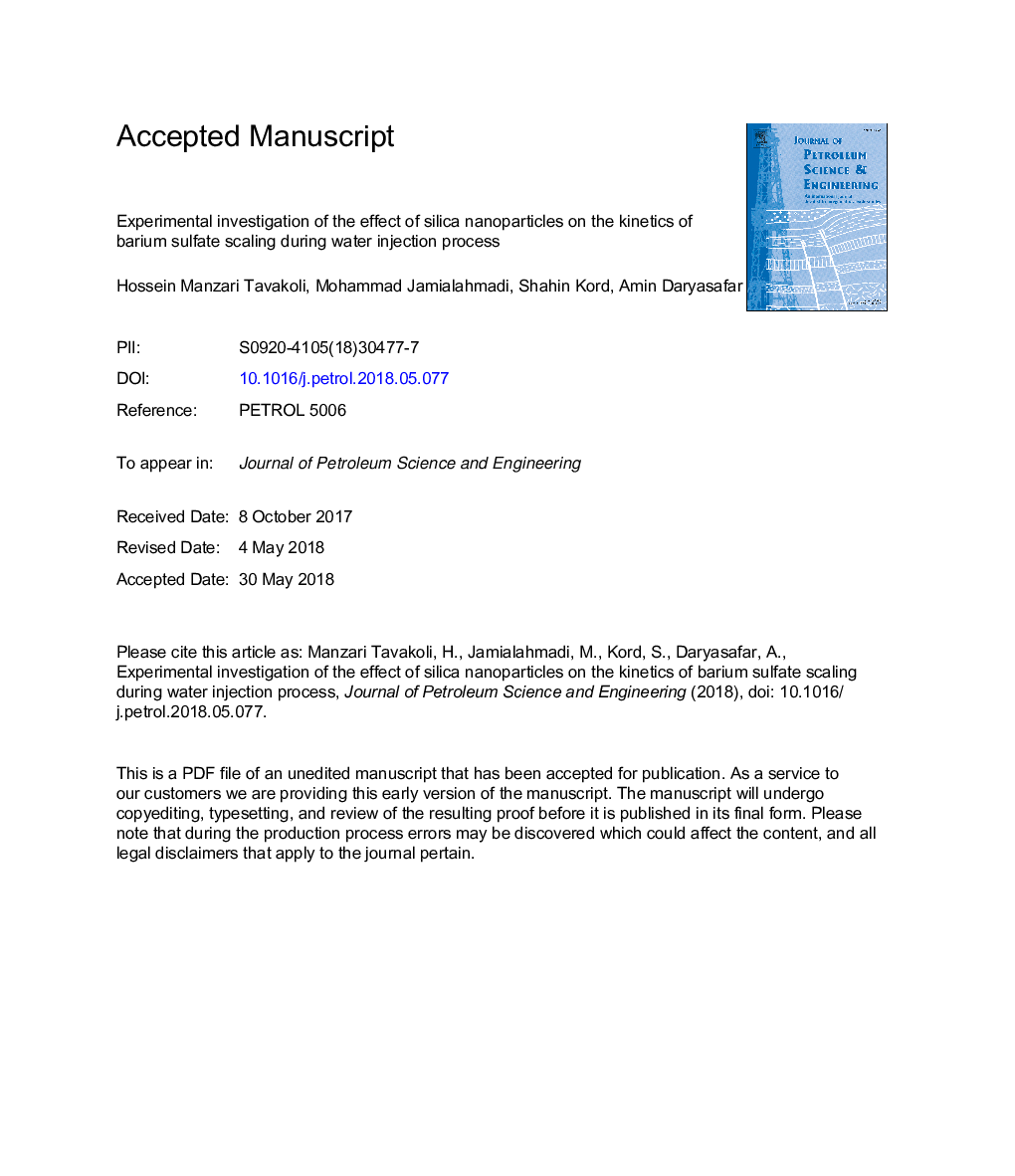| Article ID | Journal | Published Year | Pages | File Type |
|---|---|---|---|---|
| 8124571 | Journal of Petroleum Science and Engineering | 2018 | 27 Pages |
Abstract
Water injection is one of the most promising enhanced oil recovery (EOR) techniques, in which the incompatibility of injection and formation waters can lead to the risk of scale formation. Recently, several researchers have investigated different chemically scale inhibitors to minimize scaling precipitation, amongst which nanotechnology has been considered as an effective solution. In this study, permeability reduction caused by deposition of barium sulfate scaling on sandstone cores has been investigated. Mixing of synthetic sea water and high-barium formation water at various temperatures (25-90â¯Â°C), injection rates (2-5â¯ml/min), mixing ratios of sea water to formation water (0.1-2), and different concentrations of silica nanoparticles (0.05-0.15â¯wt. %) as scale inhibitors in preventing BaSO4 scale formation have been utilized for assessment of permeability reduction. Results showed that at higher temperatures, the rate of barium sulfate deposition decreases. Moreover, permeability reduction decreases with injection rate. Silica nanoparticles can be considered as good scale formation inhibitors but they can be effective up to a limited value. Optimum concentration of silica nanoparticles as scale inhibitor was found to be 0.1â¯wt.%.
Related Topics
Physical Sciences and Engineering
Earth and Planetary Sciences
Economic Geology
Authors
Hossein Manzari Tavakoli, Mohammad Jamialahmadi, Shahin Kord, Amin Daryasafar,
